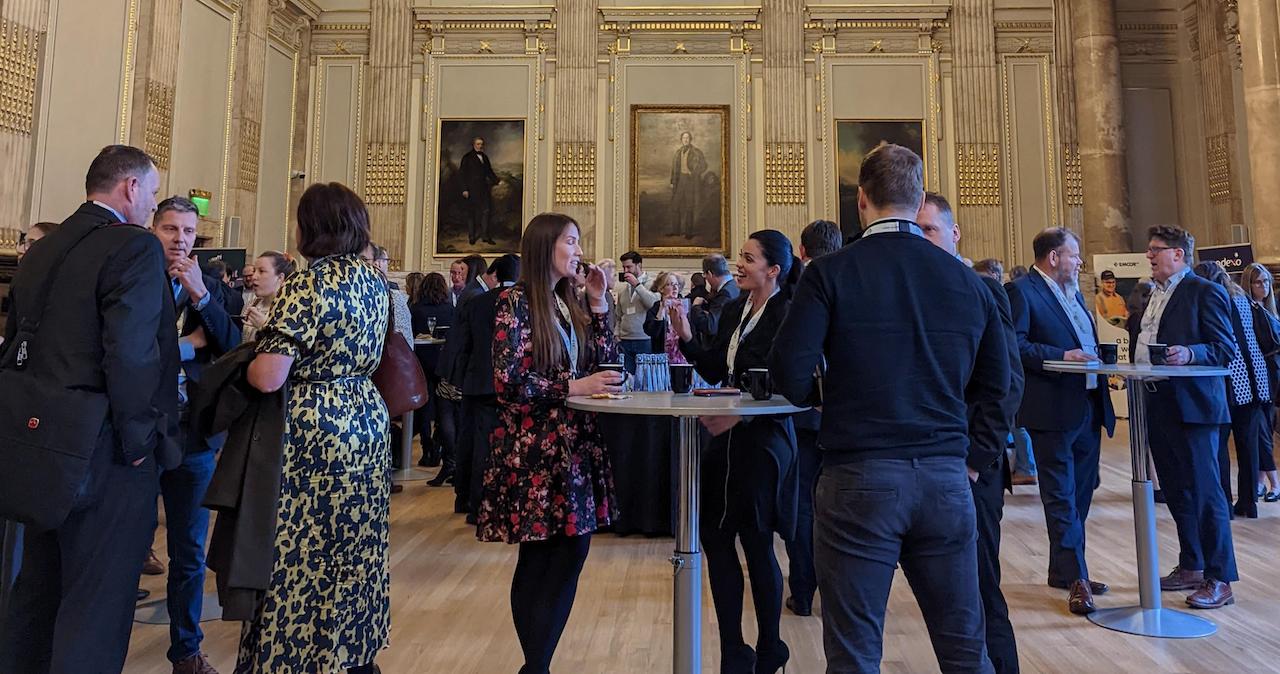The return to in-person conferencing could have felt strange after nearly two years of virtual participation. But with Workplace Futures stalwart and facilities management Guru Martin Pickard welcoming back the room, things quickly felt familiar.
Workplace Futures 2022 overview
FM is about people, place and planet. The Workplace Futures 2022 theme was FM & sustainability: the social, environmental and commercial challenge, with a brilliant line up of experts ready to unpack the strategy for a sustainable future.
The speakers kicked off with Yetunde Abdul, Head of Climate Action at the UK Green Building Council. Abdul described the challenges and opportunities of sustainability, and urged that pathways to net zero should be driven by higher standards in line with the Paris Agreement. The key to successfully decarbonising the built environment will come down to:
- Setting out clear actions to achieve net zero targets
- Accurate reporting on energy use and management
- Exhausting all other options (reducing energy use and carbon, improving other elements) before turning to offsetting
- Sharing knowledge by showcasing successes and discussing “failures”
No such thing as cheap
Georgia Elliott-Smith, managing director at Element Four, lifted the veil on tokenism when it comes to ESG, and let us know that sadly, those recycling bins in our offices aren’t strategic approaches. The biggest issues are the ones you can’t see, and someone, somewhere is always paying the cost. Change only matters if it is meaningful, so it’s important to determine what is meaningful to a business and what is meaningful on a global scale.
Guy Battle, CEO at Social Value Portal, talked about making social value work. But to manage it, you must be able to measure it. Social value strategies are becoming mandatory for conducting business in the public sector. This means there is now a social value framework, designed specifically to enable targeted sector-specific engagement with social value, taking the idea of social value and turning it into something that represents monetary value. The result is that owners and investors are becoming more broadly interested in social value policies and work is being won based partly on social contribution.
An inflection point
Around 55% of organisations are not on track to meet Net Zero by 2050. Worryingly, two thirds of them do not consider Net Zero to be commercially viable. But as Matt Dracup, plan zero client development director at Mitie explained, sustainability has now passed an inflection point. It’s no longer just a nice thing to do; it’s essential for market viability. Embracing this carries an opportunity to assess how you recruit, do business, manage your estate and how to make your business leaner.
If we hope to solve the sustainability challenge, it must be together as an industry. That’s what Jeremy Campbell, executive director marketing & business development at EMCOR believes. Collaborative business models consistently outperform traditional ones so its important to choose partners with great business ethics.
Net Zero roadmap
Humankind is at the threshold of the greatest transformational change in the last 6,000 years. Kirti Rudra, energy and carbon solutions director at EQUANS, explained the price of change. There is a value proposition to be found but a lot of positive actions don’t require funding. The cost of net zero will be £1.4tn by 2050, according to estimates. But we can’t focus on net zero and have tunnel vision when trying to achieve it. We must implement varied structuring options, be they retained, tailored or trusted control. The key is to follow correct processes and frameworks to avoid investing more than you need to.
A benchmark sector for ESG
From James Bradley, COO at Churchill Group, we learned that long term sustainability is a major factor in long term success. There’s a change in mindset around sustainability with companies understanding that if they don’t operate sustainably, they may face challenges down the line. FM providers have a responsibility to the people that make up the industry, the environment, and to clients.
Magenta attends numerous industry conferences. Check our sector news blog feed for other event recaps.









